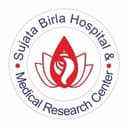Bachelor of Science (BSc) in Radiography
OR
Prepared by Docthub Courses Team ∣
Last updated on 02 Aug 2024
Overview
B.Sc. Radiography is a 3-year undergraduate course that deals with the use of medical imaging technology to diagnose and treat diseases.
It involves the use of X-ray, CT scan, MRI, Ultrasound, and other imaging techniques to produce images of the internal structure of the human body.
The course curriculum covers topics like Anatomy, Physiology, Pathology, Radiation Physics, Radiographic Techniques, and Patient Care.

Table of Content
Highlights
| Details | Bachelor of Science (B.Sc.) in Radiodiagnosis Technology |
| Level | Bachelor’s degree |
| Duration | 3 Years |
| Exam Type | Semester-wise |
| Course Fees | INR20,000-1 Lakhs |
| Min. Qualification Requirement | 10+2 in the science stream with physics, chemistry, and biology. |
| Average Salary | INR 3 to 5 Lakhs |
| Selection Process | Entrance Exam/Merit-based/ NEET, AIIMS, JIPMER |
| Min. Aggregate Score | 50% or more in 10+2 in science stream |
Eligibility
B.Sc radiology eligibility includes candidates who have completed their 10+2 with science stream (Physics, Chemistry, Biology/Mathematics) are eligible to apply for this course.
Who Should Do This Course?
This course is suitable for candidates who have an interest in medical imaging technology and want to pursue a healthcare career.
Why Study This Course?
Studying B.Sc. Radiography can lead to a fulfilling career in healthcare and offer opportunities to work in hospitals, clinics, diagnostic centers, and research labs.
Syllabus:
The course syllabus includes topics like
- Anatomy
- Physiology
- Pathology
- radiologic technology
- Radiation Physics
- Radiographic Techniques
- diagnostic imaging
- Patient Care
Top Private Colleges:
Some of the Top Private Bachelor of Science in radiography colleges in India are:
- Kasturba Medical College, Manipal
- Christian Medical College, Vellore
- SRM Institute of Science and Technology, Chennai
Top Govt Colleges:
Some of the top Government Bachelor of Science in radiography colleges in India are:
- AIIMS, Delhi
- PGIMER, Chandigarh
- JIPMER, Puducherry
Scope:
There is a growing demand for radiographers in the healthcare industry due to the increasing use of medical imaging technology for diagnosis and treatment.
Further Study Options:
After completing B.Sc. Radiography, candidates can pursue higher studies like M.Sc. Radiography or M.Tech in Biomedical Engineering.
Career Opportunities After This Course:
Graduates of B.Sc. Radiography can work as Radiographers, Radiology Technologists, MRI Technologists, and CT Scan Technologists in hospitals, clinics, diagnostic centers, and research labs.
Explore colleges for this course
Quick Go Links

Explore this course by location..
Related Job Roles
Related Job Vacancies
View All 153 Jobs

FAQS
What is a Bachelor of Science in Radiography (BSR) degree?
A Bachelor of Science in Radiography (BSR) degree is an undergraduate program that prepares students to become radiographers or medical imaging professionals.
The program typically includes coursework in anatomy and physiology, radiologic science, patient care, medical ethics and law, and clinical experience.
How long is the duration of a BSR program?
The duration of a BSR program is typically three years, although some programs may be shorter or longer depending on the institution and the specific curriculum.
What subjects are covered in the curriculum of a BSR program?
The curriculum of a BSR program covers a wide range of subjects related to medical imaging, including radiation physics, image production, radiologic technology, radiographic positioning, diagnostic imaging, radiation protection, patient care and communication, medical ethics and law, and clinical experience.
Who is eligible for admission into a BSR program?
To be eligible for admission into a BSR program, students must typically have a high school diploma or equivalent. Some programs may also require students to complete courses in science and math.
What is the role of a graduate with a BSR degree in healthcare?
Graduates with a BSR degree play an important role in healthcare by using medical imaging technology to diagnose and treat a wide range of medical conditions. They work closely with other healthcare professionals to provide high-quality patient care and ensure that medical imaging procedures are safe and effective.
Related Course titles

Qualifications
12th Science PCB
Related Specialty
Radiology Technology




